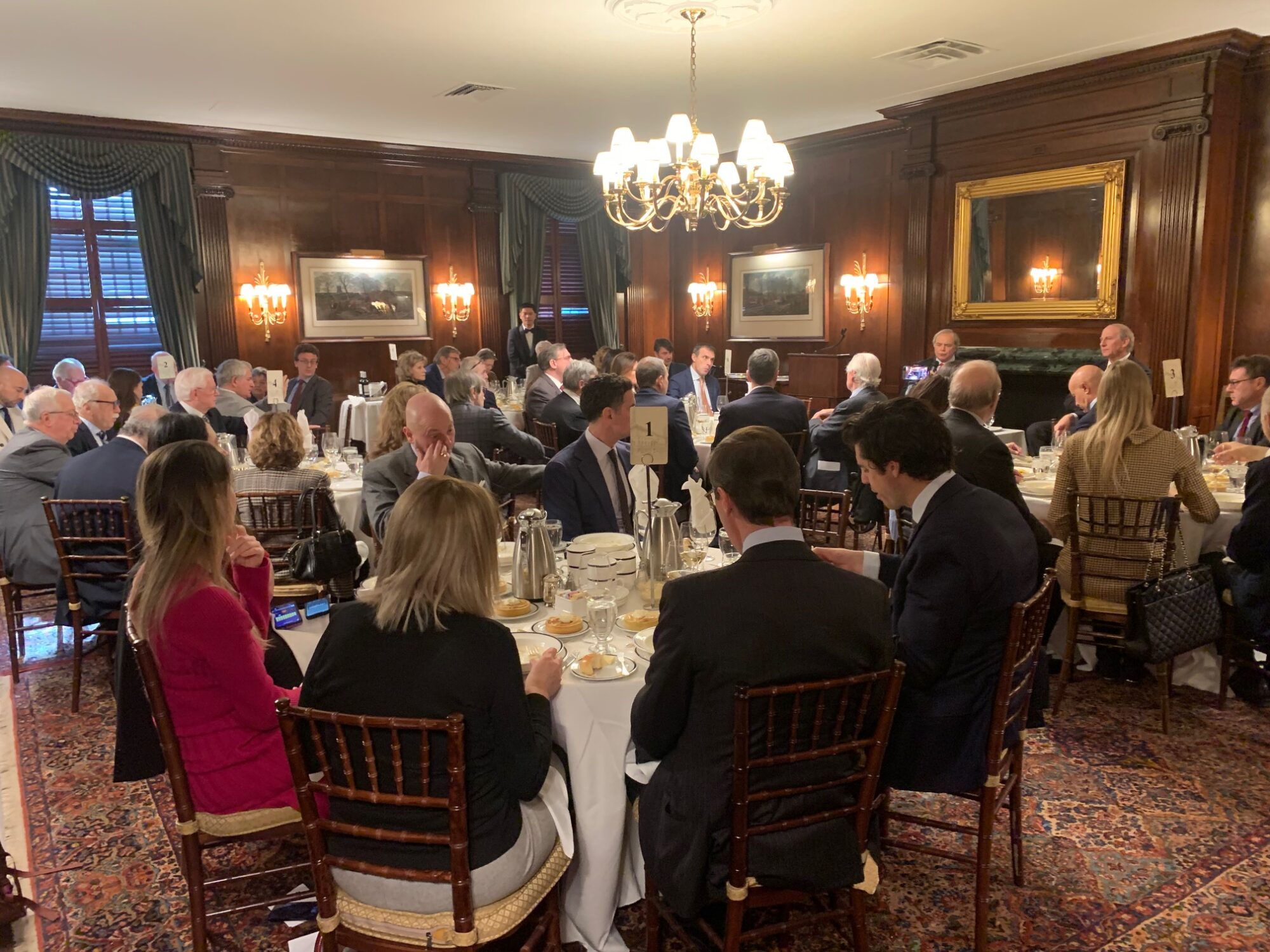Former president of the Council on Foreign Relations Richard Haass predicts a decentralized future for AI, where major powers like the United States will not be able to control its proliferation. The comments came at the monthly luncheon of GEI New York, a forum dedicated to “explore opportunities coming from the new economic, industrial, digital, scientific, and cultural frontiers,” headed by Mario Platero. As he introduced Haass, Platero offered a farewell to the former head of the Italian Cultural Institute, Fabio Finotti, whose term has just ended. Under Finotti’s stewardship, the ICI boosted its reputation as a center for sharing Italian excellence, with exhibits showcasing everything from classical art to modern technologies.
The former diplomat, now a senior counselor at the investment firm Centerview Partners, offered his insights in what the future holds for AI given recent developments. American dominance in the field has been rocked by the ascendance of DeepSeek, an impressive AI tool from a Chinese startup whose developers claim to have achieved comparable or better results than its US counterparts like ChatGPT, all on a relative shoestring budget and with less advanced tech. Haass told the GEI membership that his recent experiences trying the tech out for himself made brought him around on its potential for the future. “It’s really quite an extraordinary tool,” Haass said. “I had been somewhat skeptical about a lot of the claims that were made about AI. I am no longer skeptical.”

While Haass cautioned that the claims made by DeepSeek’s developers are “supposedly a matter of some controversy” as some US counterparts have cast doubt on their veracity, but taking them at face value, they point to a development in the technology that will not necessarily be led by large corporate or government-backed institutions. “We’re going to live in a world in which AI will proliferate,” Haass said. “We have to assume that AI will be developed in any number of places in any number of countries because the cost has come down and the breakthroughs are coming faster.” Haass imagines a “decentralized’ future for the technology, as efforts from great powers like the United States to control its proliferation are “not going to work.”
As the discussion pivoted to the Trump administration, Haass mentioned the issue of inflationary pressures that would be brought about by the president’s stated policies – like tax cuts, tariffs, and the tightening of the labor force due to immigration policy – all of which he claimed would affect the policy of the Federal Reserve, even potentially leading to a “clash” with the executive branch. “I don’t think it’s inconceivable that at some point the debate will be less about cutting rates than whether we have to adjust them upwards if all these things come to pass.”
Asked what he made of the outsized role that Silicon Valley financier Elon Musk is playing in the Trump administration’s foreign policy, the former director of policy planning at the State Department expressed concern. “I’m uncomfortable that so many people who are not elected have considerable influence and power,” Haass said. “There’s obvious structural conflicts of interest.” Musk recently appeared virtually in a rally for the far-right German party AfD, a move which Haass called “misguided.”












